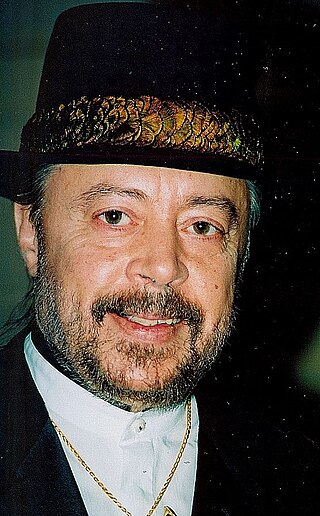
Charles Frank Mangione is an American flugelhorn player, trumpeter and composer.
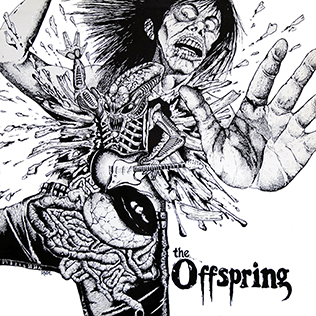
The Offspring is the debut studio album by American rock band the Offspring, released on June 15, 1989, by Nemesis Records. After being out of print for years, the album was re-released by Nitro and Epitaph Records in 1995 with a different album cover. Both the re-releases on the two respective labels are nearly identical. The Offspring has rarely played any songs from this album live since the Ignition tour finished in 1994.
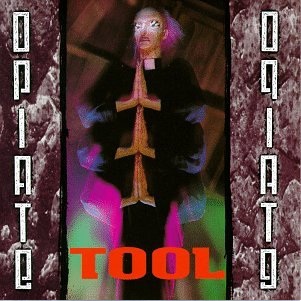
Opiate is an EP by American rock band Tool. It was produced and engineered by Sylvia Massy and former Minor Threat bassist Steve Hansgen. Released in 1992, it was the result of some two years of the band playing together after their formation in 1990. Opiate preceded Tool's first full-length release, Undertow, by a year. It is named after a quote by Karl Marx: "religion ... is the opiate of the masses". The EP was certified Platinum by the RIAA. The EP charted on several international charts when Tool released their catalog to online streaming in August 2019.
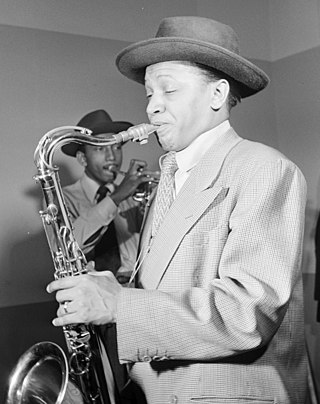
Jean-Baptiste Illinois Jacquet was an American jazz tenor saxophonist, best remembered for his solo on "Flying Home", critically recognized as the first R&B saxophone solo.
Arthur Lyman was an Hawaiian jazz vibraphone and marimba player. His group popularized a style of faux-Polynesian music during the 1950s and 1960s which later became known as exotica. His albums became favorite stereo-effect demonstration discs during the early days of the stereophonic LP album for their elaborate and colorful percussion, deep bass and 3-dimensional recording soundstage. Lyman was known as "the King of Lounge music."

Ladysmith Black Mambazo are a South African male choral group singing in the local vocal styles of isicathamiya and mbube. They became known internationally after singing with Paul Simon on his 1986 album Graceland, and have won multiple awards, including five Grammy Awards, dedicating their fifth Grammy to the late former President Nelson Mandela.
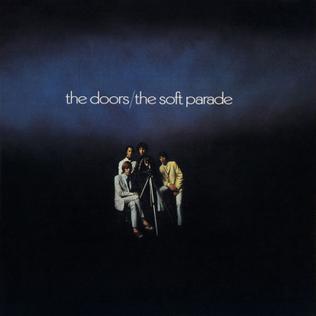
The Soft Parade is the fourth studio album by American rock band the Doors, released on July 18, 1969, by Elektra Records. Most of the album was recorded following a grueling tour during which the band was left with little time to compose new material. Record producer Paul A. Rothchild recommended a total departure from the Doors' first three albums: develop a fuller sound by incorporating brass and string arrangements provided by Paul Harris. Lead singer Jim Morrison, who was dealing with personal issues and focusing more on his poetry, was less involved in the songwriting process, letting guitarist Robby Krieger to increase his own creative output.

Abdullah Ibrahim is a South African pianist and composer. His music reflects many of the musical influences of his childhood in the multicultural port areas of Cape Town, ranging from traditional African songs to the gospel of the AME Church and Ragas, to more modern jazz and other Western styles. Ibrahim is considered the leading figure in the subgenre of Cape jazz. Within jazz, his music particularly reflects the influence of Thelonious Monk and Duke Ellington. He is known especially for "Mannenberg", a jazz piece that became a notable anti-apartheid anthem.

Salif Keïta is a Malian singer-songwriter, referred to as the "Golden Voice of Africa". He is a member of the Keita royal family of Mali.
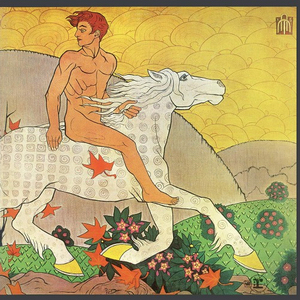
Then Play On is the third studio album by the British blues rock band Fleetwood Mac, released on 19 September 1969. It was the first of their original albums to feature Danny Kirwan and the last with Peter Green. Jeremy Spencer did not feature on the album apart from "a couple of piano things". The album offered a broader stylistic range than the straightforward electric blues of the group's first two albums, displaying elements of folk rock, hard rock, art rock and psychedelia. The album reached No. 6 on the UK Albums Chart, becoming the band's fourth Top 20 LP in a row, as well as their third album to reach the Top 10. The album's title, Then Play On, is taken from the opening line of William Shakespeare's play Twelfth Night—"If music be the food of love, play on".

Claire Johnston is an Anglo-South African singer and songwriter. She is the lead singer of the South African fusion band Mango Groove.
Mango Groove is an 11-piece South African Afropop band whose music fuses pop and township music—especially marabi and kwela.
Aaron "Big Voice Jack" Lerole was a South African singer and penny whistle player. Lerole was a leading performer in the kwela music of 1950s South Africa. Lerole was the bandleader of Elias and His Zig-Zag Jive Flutes, who had an international hit record in 1958 with "Tom Hark". He co-founded the fusion band Mango Groove in 1984, and later collaborated with Dave Matthews Band, a rock band from the United States.
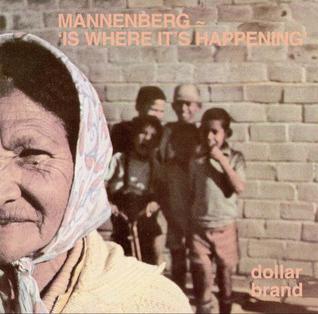
"Mannenberg" is a Cape jazz song by South African musician Abdullah Ibrahim, first recorded in 1974. Driven into exile by the apartheid government, Ibrahim had been living in Europe and the United States during the 1960s and '70s, making brief visits to South Africa to record music. After a successful 1974 collaboration with producer Rashid Vally and a band that included Basil Coetzee and Robbie Jansen, Ibrahim began to record another album with these three collaborators and a backing band assembled by Coetzee. The song was recorded during a session of improvisation, and includes a saxophone solo by Coetzee, which led to him receiving the sobriquet "Manenberg".
Alan Lazar is a South African-born composer and novelist. He has written music for more than 50 films and TV shows, including a string of Netflix movies. He was a member of the South African band Mango Groove and is the author of the book ROAM. He became a US citizen in 2010.

Mango Groove is the self-titled debut album of Mango Groove, a South African pop fusion band whose sound is influenced by township music. Seven of the eleven songs on the album were released as singles. The album sold extremely well, breaking national sales records and maintaining a high rank in the radio charts for a year. The band dedicated the album to Mickey Vilakazi, a bandmate who died in June 1988.

Bang the Drum is the fifth studio album by South African Afropop band Mango Groove. Released in September 2009, it was the band's first studio album since Eat a Mango in 1995.

Faces to the Sun is the sixth studio album by South African Afropop band Mango Groove. Released in October 2016, Faces to the Sun is a double album with more than a dozen featured artists. The first disc comprises renditions of major South African pop songs. Lead singer Claire Johnston described the selections as "personal favourites of ours" that are about what it means to be South African. The second disc features eight original songs, plus a remix of Mango Groove's cover of "Durban Road".

Eat a Mango is the fourth album by Afropop music group Mango Groove. It was released by Tusk Music in November 1995. In 1996, Eat a Mango won a SAMA in the category "Best Adult Contemporary Performance: English" at the second annual South African Music Awards. The band recorded music videos for three songs from the album: "Eat a Mango", "New World ", and "Right Time".

Another Country is the third album by South African Afropop fusion band Mango Groove. It was released in 1993, near the end of the negotiations to end apartheid in South Africa. The album was released in South Africa on cassette and CD by One World Entertainment, an imprint of Tusk Music.
















